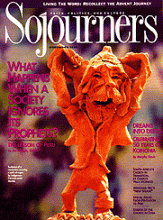We are not against a hierarchy. But if there be hierarchy, because this can be a legitimate cultural necessity, it must always be, according to social-theological reasoning, a hierarchy of service. If it is not so, how can we truly affirm that the church is an icon of the Trinity (persons of equal dignity)?-- Leonardo Boff
With these words to his "fellow travelers on the journey of hope," Boff justifies his decision to remain in the church while leaving the priesthood and Franciscan Order. Richard Rohr, although he chooses to remain a Franciscan priest, writes in Boff's spirit of deep theological renewal, in accord with the charism of the order's founder, St. Francis of Assisi.
Simplicity originated as a series of lectures given by Rohr in Europe, which were taped and transcribed by listeners. The contents emerge from Rohr's life as a Franciscan priest in the greater congregation of the Catholic Church, and the smaller base communities in the United States, including the New Jerusalem Community in Cincinnati, Ohio, which he founded. The author expounds on several themes, including community, church, Christian political commitment, contemplation, and femininity as an attribute of God.
Two major motifs run throughout the book: the interrelationship between action and contemplation and the apocalyptic nature of the contemporary historical moment. In the chapter devoted to contemplation, Rohr says:
[I]n the Western world...we identify ourselves either with our thoughts, our self-image, or with our feelings. We have to find a way to get behind our thoughts, feelings, and self-image ....We have to find out who we were all along in God before we did anything right or wrong. This is the first goal of contemplation.
Read the Full Article

